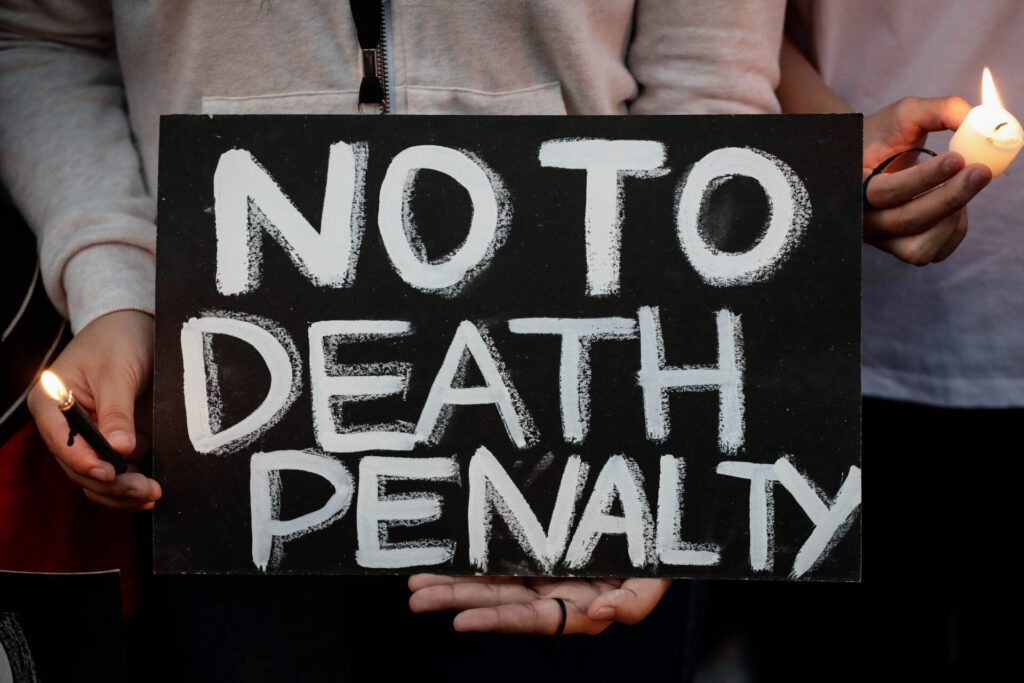
Capital punishment, a phrase that sends shivers down the spines of some and a sense of justice to others, has been a subject of intense debate for centuries. This practice, which involves the state-sanctioned killing of an individual as punishment for a crime, raises profound ethical, moral, and legal questions.
A Historical Perspective
The roots of capital punishment can be traced back to ancient civilizations, where it was often used as a means of retribution or to deter crime. Throughout history, various methods of execution have been employed, ranging from the barbaric to the seemingly humane. From the public hangings and beheadings of medieval times to the more modern methods of lethal injection and electrocution, the practice has evolved, but the fundamental question remains: does society have the right to take a human life?
In recent centuries, a growing movement has emerged to abolish the death penalty. Many countries have abolished the practice outright, while others have significantly reduced its use or imposed moratoriums on executions. This global shift reflects a growing recognition of the inherent flaws and ethical issues associated with capital punishment.
The Dueling Arguments
Supporters of capital punishment argue that it serves as a just punishment for heinous crimes, offering retribution to victims’ families. They believe it deters crime by imposing the ultimate consequence, and that it provides a sense of closure for the families of victims.
Opponents, however, raise serious concerns. They highlight the risk of executing innocent people due to potential errors in the justice system. Numerous cases of wrongful convictions have been brought to light, emphasizing the fallibility of the legal system. Moreover, they argue that capital punishment constitutes cruel and unusual punishment, violating fundamental human rights. The methods of execution, particularly those involving prolonged suffering, have been condemned by human rights organizations worldwide.
Critics also point to the lack of evidence supporting its effectiveness as a deterrent. Studies have shown that the death penalty does not have a significant impact on crime rates. Additionally, it has been argued that the death penalty disproportionately affects marginalized groups, particularly people of color and those from lower socioeconomic backgrounds.
Read Generational Gap: Builders, Boomers, Millennials, Gen X, Gen Z, and Gen Alpha
The Global Trend Towards Abolition
In recent decades, there has been a global trend towards the abolition of the death penalty. Many countries have abolished the practice altogether, while others have imposed moratoriums on executions. This trend reflects a growing recognition of the inherent flaws and ethical problems associated with capital punishment.

A Divided Nation
The United States stands out as one of the few developed nations that still retain the death penalty. Public opinion remains divided, with a significant portion of the population supporting its use, particularly for heinous crimes. However, a growing movement seeks to abolish the practice. Several states have already done so, and legal challenges continue to challenge its constitutionality at the federal level.

Ethical Implications and Societal Impact
Capital punishment raises profound ethical questions about the value of human life and the role of the state. It forces us to confront the difficult question of whether the state has the right to take a human life, even in the most heinous of circumstances.
Beyond the ethical implications, capital punishment also has significant societal impacts. It can lead to the execution of innocent individuals, perpetuate racial and economic disparities within the justice system, and undermine the value of human life. The death penalty can also have a chilling effect on society, fostering a culture of fear and violence.
The Psychological Impact of Capital Punishment
Capital punishment, beyond its legal and moral implications, has profound psychological effects on individuals and society. For victims’ families, the death penalty can offer a sense of closure and justice. However, it can also lead to complex emotions, such as grief, anger, and a sense of unresolved trauma.
For death row inmates, the prolonged uncertainty and the anticipation of execution can inflict severe psychological distress. The psychological toll of solitary confinement, often used in death row settings, can exacerbate mental health issues, leading to depression, anxiety, and suicidal thoughts.
Societally, the death penalty can desensitize people to violence and normalize the taking of human life. It can also perpetuate a cycle of violence, as studies have shown a correlation between exposure to violence and increased aggression.
The Role of Religion and Morality
Religious beliefs and moral philosophies play a significant role in shaping attitudes towards capital punishment. Many religious traditions, including Christianity, Islam, and Judaism, have complex and often conflicting views on the issue. Some interpretations support the death penalty as a form of divine justice, while others emphasize mercy, forgiveness, and the sanctity of life.
From a moral perspective, the debate often centers on the concept of retribution versus rehabilitation. While some argue that the death penalty is a just punishment for heinous crimes, others contend that it is more ethical to focus on rehabilitation and restorative justice. The question of whether society has the right to take a human life, even in the most extreme cases, continues to be a central ethical dilemma.
Read The Apology Paradox: Supporting Your Partner and Facing the Fallout
Conclusion
Capital punishment remains a highly divisive issue, with passionate arguments on both sides. As the global trend leans towards abolition, it’s crucial to engage in thoughtful and informed debate about this complex issue. By examining the ethical, moral, and practical implications, we can work towards a more just and humane society.
FAQs
- What are the most common methods of execution used today? Lethal injection is the most common method, but hanging and electrocution are still used in some jurisdictions.
- Is the death penalty an effective deterrent to crime? There’s little evidence to support the claim that capital punishment is a more effective deterrent than life imprisonment.
- What are the arguments for and against the death penalty? Supporters argue for retribution, deterrence, and closure for victims’ families. Opponents raise concerns about the risk of error, cruel and unusual punishment, ineffectiveness, racial bias, and moral implications.
- What is the global trend regarding the death penalty? A global trend toward abolition is evident, with many countries abolishing the practice or imposing moratoriums on executions.
- What is the role of public opinion in the debate over capital punishment? Public opinion significantly influences the debate. As public sentiment shifts against capital punishment, there’s increasing pressure on lawmakers to abolish the practice.


